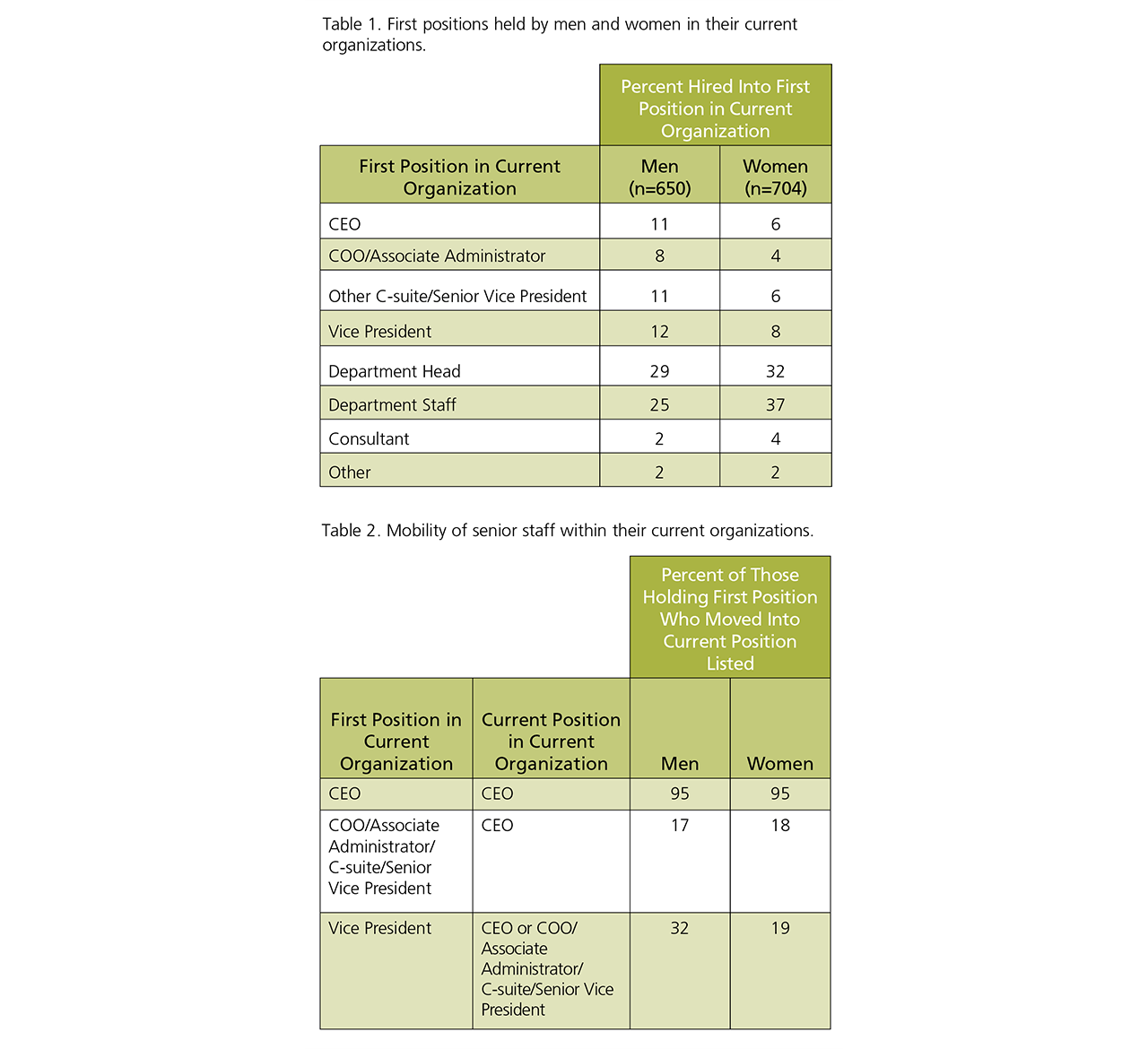In late 2018, ACHE conducted the sixth in a series of studies comparing career attainments of women and men healthcare executives. ACHE has conducted these studies every five to six years since 1990. In all, 5,138 men and women members of ACHE received the 2018 study survey. Of those, 1,416 responded for an overall response rate of 28%. The study design helped to ensure that the men and women surveyed had equivalent levels of years in the field. Those responding also had approximately equal levels of education, with 93% of men and 92% of women holding a master’s degree or doctorate.
Most survey respondents, 50% of women and 44% of men, began their healthcare management careers in staff positions. Approximately equal proportions, 38% of women and 35% of men, began their careers at the department-head level. Men were more likely than women to begin their career at the level of vice president or higher; about 16% of men but only 8% of women did so.
Men in the survey were also more likely than women respondents to have been hired by their current employer into positions of vice president or above (See Table 1). Forty-two percent of men compared with 24% of women did so. Conversely, women respondents were more likely than their male counterparts to begin their careers with their current employers as department heads or staff.
Table 2 shows the movement of women and men respondents in senior positions in their current organizations. Almost all—95%—of men and women who joined their current organizations as CEO have remained at that level. Almost equal proportions of men and women, 17% and 18% respectively, who joined their organizations as either COO, another member of the C-suite or senior vice president, rose to the CEO position. However, women were less likely than men in the survey to have moved higher than the vice president position; 32% of men versus 19% of women reported they had done so.
ACHE wishes to thank the men and women who responded to this survey for their time, consideration, and service to their profession and to healthcare management research.


